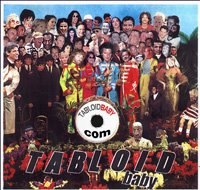The Holtzman Affair

by ELLI WOHLGELERNTER
In an interview on July 20 with the Israeli Web portal Walla!, Petah Tikva manager and former Major Leaguer Ken Holtzman let loose with a sweeping broadside against the Israel Baseball League, sparing no one.
He criticized the baseball fields: “They would reach the level of high schools in our country”; the teams: “Chosen at random, and in a strange manner”; the Israeli players: “There are no good Israeli players”; the other players: “According to what I can see, none of the players can reach even semi-pro baseball in the United States… the really good player would never come here”; and the Israeli fan: “There is no chance that baseball will succeed in Israel. People here relate to baseball the way people in America relate to soccer. They see it as something very boring, and it will never catch on… you can't make a big impression because there is no culture of baseball, and the facilities are the worse possible.”
A season of frustration all came pouring out, and against league organizers as well.
“They wanted to make the league work very very quickly,” Holtzman said. “The main point to them was that there would be a league, that they could then go to Bud Selig, commissioner of Major League Baseball [and a member of the league’s advisory committee], to tell him that ‘we provided the goods,’ that there is also baseball in Israel. But they opened the league a year too soon. It makes no sense that they would sit in the Eastern United States doing publicity and creating the league, and at the same time, there is nobody here supervising. Look at this field,” he said, referring to Sportek Field in Tel Aviv. “The league opened, and this field still wasn't ready. They pushed off 25 games because of scandalous management. They should have waited.”
 Holtzman said that the lack of care on the part of management was a detriment to the league’s success.
Holtzman said that the lack of care on the part of management was a detriment to the league’s success.“They talked about a 1,000 fans a game? Here in Petah Tikva, we get a 100 in the best case. The players also complain about the lack of concern. It's not good, because when they go back to their homes, they will tell other players not to come. I also asked myself, what is the goal here? To create a major league, or just to give players a chance? This league will last a year, and in the best case, two years.”
Two weeks later, Holtzman left Israel, by mutual agreement with the league. Commissioner Dan Kurtzer, former U.S. ambassador to Israel, would not comment on the Holtzman affair.
“There were issues, and we had differences of view. The time had come when, mutually, we agreed that it was best for him to go home. We suggested to him that it would be best for everybody if this didn’t get all over the press. So far we haven’t heard that he has, so we haven’t talked about it either.”
Kurtzer did respond to the question of whether the league started a year too soon.
“No. I think if we had not started this year, whatever momentum we had built up in the states we would have-- not lose it, but it would have dissipated, and it would have been real hard. There’s a constant struggle we had between getting it going, and convincing people we were serious, and getting everything organized, and you’re balancing all the time.”
If the league was upset, the players more so, not so much over Holtzman’s criticism of the league-– much of which they agreed with-- but of his going public with it, and, first and foremost, the knocking of his own Pioneer players.
“To have a man do that, and just bash the team like that - it’s a team game, don’t throw your team under the bus like that,” said Steve Raab, of the Rana'ana Express. “It’s one thing to keep something like that contained within your team; if he wants to talk to his team like that, that’s his prerogative. But these are 23-year old kids that he’s telling couldn’t even make a high school baseball team?
“He didn’t even give it two months-- I don’t think he gave it a chance from when he got here. He saw how the team looked in practice, and that was it.”
How the team looked, and Holtzman’s criticism of his team being chosen at random, and in a strange manner, had some validity, according to someone in league management. He said that the lack of expertise by the person who drafted the Petah Tikva team made it obvious that the Pioneers were not going to be the same caliber as the rest of the league. “I knew that day that the team was in trouble,” said the executive, who was present on draft day.
Players were divided over Holtzman’s comments.
"He had some very valid points," said pitcher Leon Feingold of the Netanya Tigers, a native New Yorker and a professional competitive eater who has been ranked as high as 12th in the world. "Obviously I don’t agree with the way that he did it. But as a major leaguer accustomed to a certain level of both treatment and infrastructure in organization, I can see why he was very surprised and disheartened by what he saw going on here."
Nate Fish, a league All-Star who lives in Brooklyn and is a student at the New School, said everyone tried to put his best foot forward when dealing with the press, and when dealing with people outside the league. "I think they did make an effort to keep it under wraps when things went wrong," Fish said. "But it's certainly brave of him, in a way, to be honest about what he thought, and not just give the cliché answers that everyone always gives. So I respect people who are honest, especially when they can shy away from speaking their mind. But at the same time, you have to have tact. It's in all of our best interest to promote the league, as opposed to ream it."
"I would disagree with the way he said it, but he wasn't wrong with the issues," said Aaron Levin, who was born in Los Angeles and now lives in San Luis Obispo . "I think he was a just a little frustrated, as everyone else is. He just expressed himself in a different way than I would have."
”I didn't bother to read Holtzman's comments," said Jacob Levy, who was born in Santa Monica and now lives in Los Angeles . "If Holtzman's assessment was that the league started a year too soon, I respectfully disagree. Baseball can never be played too soon. Could the fields have been better? Certainly. Perhaps if Israel 's tax rates were lower, the economy would readily offer the expertise and materials required to build excellent baseball fields usually developed first for other applications. As for the assertion that most of the players couldn't play professionally in the U.S., that holds true for all leagues save the professional leagues of the U. S. of A."
“He really doesn’t know what he’s talking about,” said Nat Ballenberg, 22, from Long Valley, New Jersey. “He knows pitching mechanics, but he doesn’t know how to run a team. The things he said about his players - that’s just totally unprofessional.”
“You assume a guy with five championship rings can conduct himself in a professional way,” said Travis Zier, a graduate of Haverford College outside Philadelphia, where he is second all-time in wins. “He shouldn’t have done it. He’s a professional baseball player? He can’t manage for s--t.”











No comments:
Post a Comment